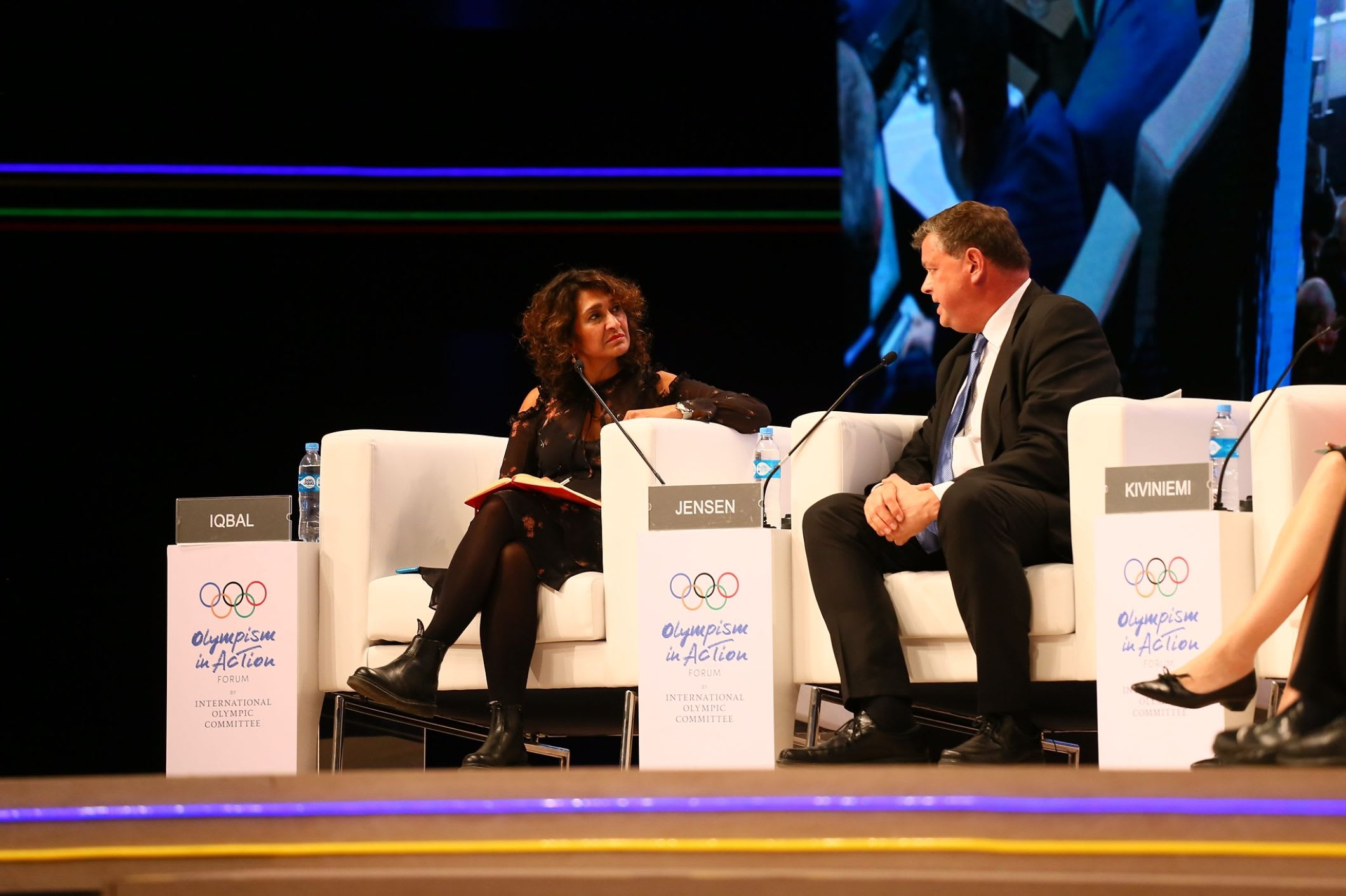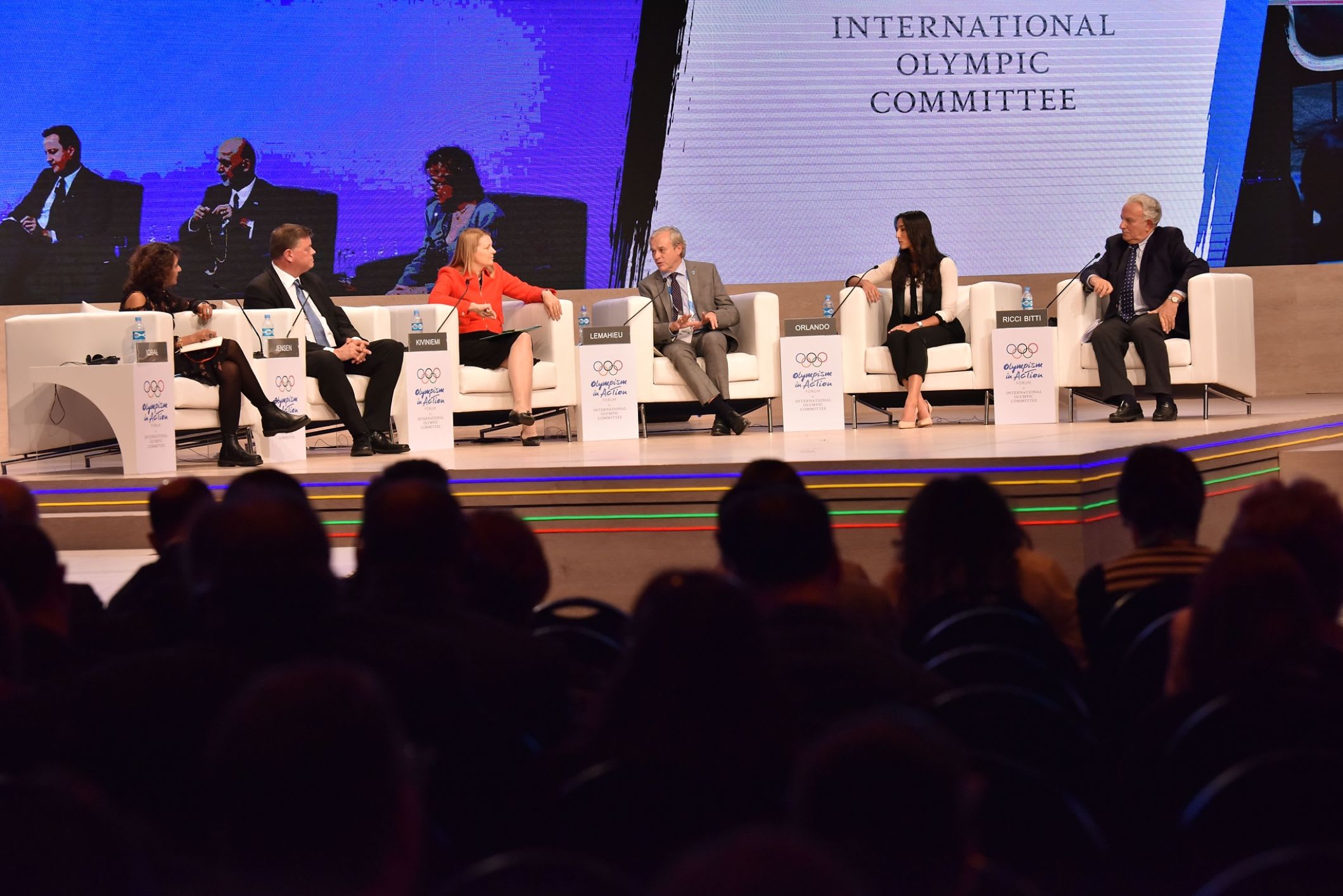Integrity in Sport: From Institutional Corruption to Match-Fixing and Betting
Doping is not the only area where integrity in sports competition comes into play. The Olympism in Action Forum also addressed the attacks on the integrity of sporting events by the manipulation of competition, linked in particular to sports betting. Additionally, it looked at the global integrity of sport organisations, with a focus on the efforts being made to tackle the risks of corruption. Every time fans hear another story about bribery or other forms of corruption, the credibility of the entire world of international sport, including the Olympic Movement, gets called into question. Improving governance and boosting transparency and accountability are keys to maintaining its reputation.
Panellists discussed ways to build better awareness of the risks of corruption and promote greater transparency and accountability by stakeholders in the Movement as the best way to mitigate these risks.

The IOC has worked for many years to combat corruption and uphold integrity, in particular as the bidding process for the Olympic Games may create risks of corruption; this has been its focus since 1999. The IOC was the first sports organisation to set up an independent Ethics Commission the same year, and it has since adopted a Code of Ethics, term and age limits, and voting restrictions in cases of conflicts of interests, including when linked to IOC Members’ home nation or sport.
Amongst the new measures taken by the IOC: the improvement of the IOC Ethics Commission’s independence with the majority of members, including the Chair, who are not linked to the IOC; an IOC public register of consultants working for a candidature; the publication of the Host City Contract; and a new awareness-raising programme for IOC Members.
Panellist Jean-Luc Lemahieu, Director of the Division for Policy Analysis and Public Affairs at the United Nations Office on Drugs and Crime, credited this “evolving framework” with helping to make great progress recently, though Mari Kiviniemi, Deputy Secretary-General of the Organisation for Economic Cooperation and Development (OECD), said she would still like to see “greater transparency, accountability and openness in sport”.
Partnerships with governments and intergovernmental organisations are key for sports organisations’ integrity. The newly formed International Partnership Against Corruption in Sport (IPACS) enables the development of pragmatic working methods between governments, intergovernmental organisations, such as the Organisation for Economic Cooperation and Development (OECD), the United Nations Office on Drugs and Crime (UNODC) and the Council of Europe, and international sports organisations.

A breakout session then examined further what happens when trust in sport is threatened by match-fixing and betting. As technology has evolved in recent years, betting has become ever more globalised and easy. This is intertwined with the problem of match-fixing, which can ensnare referees, officials, coaches and athletes.
In 2013, the IOC created the Integrity Betting Intelligence System (IBIS), which enables exchanges of information and intelligence between International Federations and multi-sports event organisers and private and public sport betting operators, national betting authorities and law enforcement agencies.
The IOC has also developed robust educational tools for the athletes, their entourage and sports officials, all of which will be coming to life at the upcoming Youth Olympic Games at the Believe in Sport booth. The IOC also recently renewed its partnership with INTERPOL that provides training programmes to raise awareness and encourages exchange of intelligence at national level between law enforcement agencies and sports organisations.
Every day there are thousands of sporting events that go on without a problem. Our challenge is identifying the one that has a problem and categorically the way to do that is for sports organisations, government regulators and law enforcement to work together.EXECUTIVE DIRECTOR OF THE GAMBLING COMMISSION IN THE UK
As with corruption in institutions, tackling match-fixing is a collaborative effort. Session participant Richard Watson, the Executive Director of the Gambling Commission in the UK, said: “Every day there are thousands of sporting events that go on without a problem. Our challenge is identifying the one that has a problem and categorically the way to do that is for sports organisations, government regulators and law enforcement to work together.”